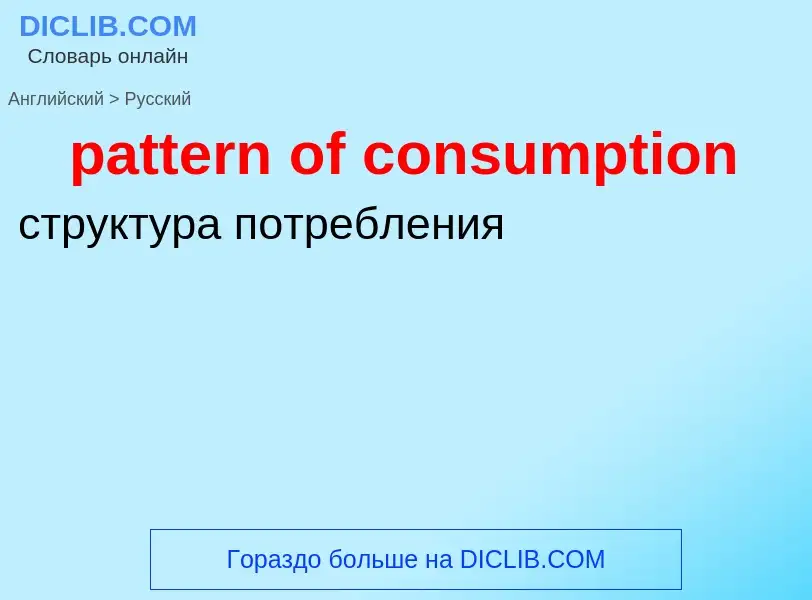Перевод и анализ слов искусственным интеллектом ChatGPT
На этой странице Вы можете получить подробный анализ слова или словосочетания, произведенный с помощью лучшей на сегодняшний день технологии искусственного интеллекта:
- как употребляется слово
- частота употребления
- используется оно чаще в устной или письменной речи
- варианты перевода слова
- примеры употребления (несколько фраз с переводом)
- этимология
pattern of consumption - перевод на русский
общая лексика
потребление электроэнергии
['pætnrekəg'niʃ(ə)n]
общая лексика
распознавание образов
идентификация графических изображений с помощью компьютерных технологий. Используется, в биометрических методах контроля доступа для распознавания голоса, отпечатков пальцев, фотографий и. п
общая лексика
потребляемая мощность
расход энергии
строительное дело
расход мощности (энергии)
Смотрите также
строительное дело
раскрой листового материала (операция)
Определение
.
Википедия

Consumption is the act of using resources to satisfy current needs and wants. It is seen in contrast to investing, which is spending for acquisition of future income. Consumption is a major concept in economics and is also studied in many other social sciences.
Different schools of economists define consumption differently. According to mainstream economists, only the final purchase of newly produced goods and services by individuals for immediate use constitutes consumption, while other types of expenditure — in particular, fixed investment, intermediate consumption, and government spending — are placed in separate categories (see consumer choice). Other economists define consumption much more broadly, as the aggregate of all economic activity that does not entail the design, production and marketing of goods and services (e.g., the selection, adoption, use, disposal and recycling of goods and services).
Economists are particularly interested in the relationship between consumption and income, as modelled with the consumption function. A similar realist structural view can be found in consumption theory, which views the Fisherian intertemporal choice framework as the real structure of the consumption function. Unlike the passive strategy of structure embodied in inductive structural realism, economists define structure in terms of its invariance under intervention.




.jpg?width=200)
![Fitting a nettle/canvas-fabric on a [[dress form]] Fitting a nettle/canvas-fabric on a [[dress form]]](https://commons.wikimedia.org/wiki/Special:FilePath/Fitting muslin dummy.jpg?width=200)
.jpg?width=200)



![tailor's tack]] with thread to mark a pattern on fabric before cutting the fabric tailor's tack]] with thread to mark a pattern on fabric before cutting the fabric](https://commons.wikimedia.org/wiki/Special:FilePath/Basting pattern markings.jpg?width=200)

![The face was automatically detected]] by special software. The face was automatically detected]] by special software.](https://commons.wikimedia.org/wiki/Special:FilePath/800px-Cool Kids of Death Off Festival p 146-face selected.jpg?width=200)
